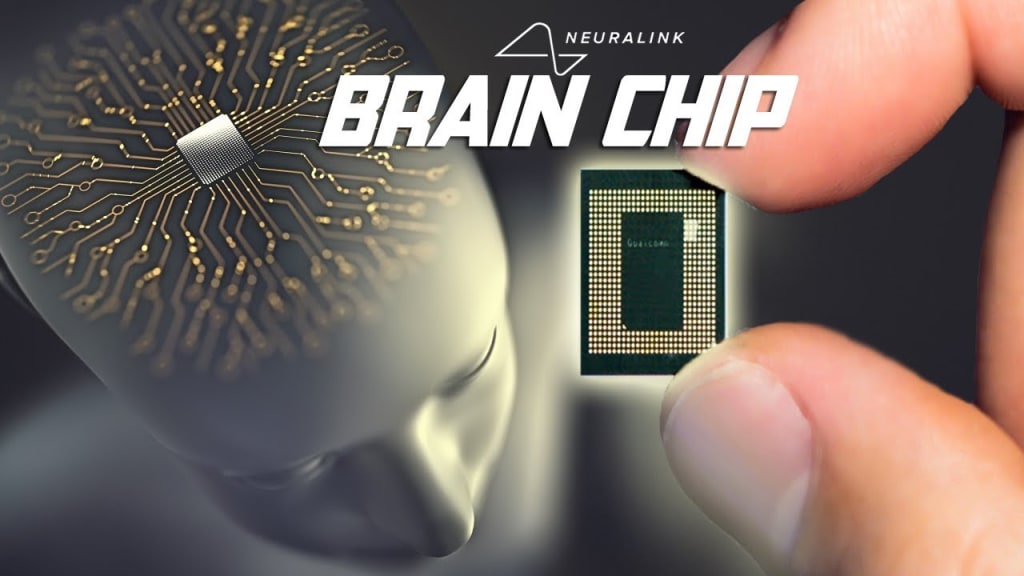Unlocking the Power of the Mind: The Revolutionary Potential of Brain Chip Technology
The Next Frontier: Exploring the Fascinating World of Brain Chips

As technology continues to advance at an unprecedented pace, one of the most exciting developments in recent years has been the emergence of brain chips. Brain chips are tiny electronic devices that can be implanted into the brain to help improve cognitive function, treat neurological disorders, and even enhance human capabilities.
And now, a new breakthrough in brain chip technology is causing shockwaves throughout the entire industry. Researchers have developed a brain chip that can not only record neural activity but also stimulate neurons in real-time.
This new brain chip uses advanced machine learning algorithms to interpret neural activity in the brain and then stimulate specific areas in real-time to enhance cognitive function. The chip can be used to treat a wide range of neurological disorders such as Parkinson's disease, epilepsy, and depression.
The breakthrough was achieved by a team of researchers at the University of California, Berkeley, who used advanced nanotechnology to create a new type of brain chip that is smaller, more flexible, and more efficient than previous versions.
This new chip is designed to be implanted directly into the brain and can be used to record and stimulate neural activity simultaneously. It can be used to treat a wide range of neurological disorders, including Parkinson's disease, epilepsy, and depression.
The implications of this breakthrough are significant, as it could lead to a new era of personalized medicine where brain chips are used to treat a wide range of neurological disorders. It could also lead to the development of new brain-computer interfaces that allow humans to control machines with their minds.
While the technology is still in its early stages, this breakthrough is a major step forward in the development of brain chips and could have a profound impact on the way we treat neurological disorders in the future.
Overall, the development of this new brain chip is an exciting development that is sure to capture the attention of researchers and investors alike. As the technology continues to advance, it is likely that we will see even more breakthroughs in the field of brain chips, which could revolutionize the way we treat neurological disorders and enhance human capabilities.
Frequently Asked Questions (FAQ) about Brain Chips
What are brain chips?
Brain chips are tiny electronic devices that are implanted into the brain to help improve cognitive function, treat neurological disorders, and even enhance human capabilities.
How do brain chips work?
Brain chips work by recording and stimulating neural activity in the brain. They use advanced machine learning algorithms to interpret neural activity and then stimulate specific areas in real-time to enhance cognitive function.
What are the potential benefits of brain chips?
The potential benefits of brain chips include the ability to treat a wide range of neurological disorders such as Parkinson's disease, epilepsy, and depression, as well as the development of new brain-computer interfaces that allow humans to control machines with their minds.
Are brain chips safe?
Brain chips are still in the early stages of development, and their safety is still being studied. However, researchers have taken precautions to ensure that the chips are safe for use in humans.
How are brain chips implanted?
Brain chips are typically implanted using a surgical procedure. A small incision is made in the skull, and the chip is inserted directly into the brain.
Can brain chips be removed?
Brain chips can be removed, but it requires another surgical procedure to do so.
Are brain chips currently available for use?
Brain chips are still in the early stages of development, and they are not yet widely available for use in humans. However, researchers are continuing to make progress in this field, and it is likely that we will see more breakthroughs in the future.
What are the ethical considerations of using brain chips?
The use of brain chips raises ethical considerations such as the potential for misuse, privacy concerns, and the impact on human identity. These concerns must be carefully considered and addressed as the technology continues to advance.
Can brain chips be used for enhancement purposes?
Yes, brain chips have the potential to enhance human capabilities. For example, they could be used to improve memory, cognitive processing speed, or even physical abilities.
How do brain chips differ from traditional medical treatments for neurological disorders?
Traditional medical treatments for neurological disorders often involve the use of medication or surgery to treat symptoms. Brain chips, on the other hand, are designed to directly target and treat the underlying neural activity that is causing the disorder.
How long do brain chips last?
The lifespan of a brain chip is dependent on several factors, including the type of chip, the individual's physiology, and the conditions of use. However, most brain chips are designed to last for several years.
Will brain chips replace traditional medical treatments?
Brain chips are not intended to replace traditional medical treatments, but rather to complement them. They offer a new and innovative approach to treating neurological disorders that may be more effective for some individuals.
What are the potential risks of brain chips?
The potential risks of brain chips include infection, bleeding, and damage to surrounding brain tissue. Additionally, there are ethical concerns around the use of brain chips that must be addressed.
Who is working on developing brain chip technology?
Numerous research institutions and companies around the world are working on developing brain chip technology, including the University of California, Berkeley, Neuralink, and Kernel.
What is the future of brain chip technology?
The future of brain chip technology is still being explored, but it has the potential to revolutionize the field of neurology and human-machine interaction. As the technology continues to advance, it is likely that we will see even more breakthroughs in the field of brain chips, which could have a profound impact on society.
About the Creator
Oliver Jack
Works at Online Marketing - Affiliate, Google Adsense, Social, & Video Income






Comments
There are no comments for this story
Be the first to respond and start the conversation.